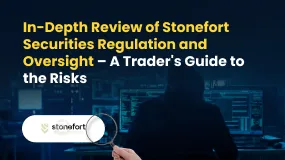简体中文
繁體中文
English
Pусский
日本語
ภาษาไทย
Tiếng Việt
Bahasa Indonesia
Español
हिन्दी
Filippiiniläinen
Français
Deutsch
Português
Türkçe
한국어
العربية
Why is the Yen Falling Against the U.S. Dollar?
Abstract:The U.S. government spending is shrinking much more quickly while the Japanese budget deficit continues to grow with increased spending and debt finance.
AT-A-GLANCE
Relative monetary policy: Expectations for rapid Fed rate rises have also boosted USD
Relative growth: The U.S. economy has also been growing much more quickly than Japans recently
The U.S. government spending is shrinking much more quickly while the Japanese budget deficit continues to grow with increased spending and debt finance.
Higher energy prices/falling trade surpluses have weighed on JPY
Increased relative risks, especially as regards JPYs role in the FX carry trade weigh against the yen.

Over the past fifteen months the U.S. dollar (USD) has gained more than 20% versus the Japanese yen (JPY) with nearly half the move coming during the past few weeks. The yens recent decline can be understood when looking at the five macroeconomic forces that tend to govern exchange rates:
Relative changes in the pace of economic growth
Relative changes in expected interest rate policy
Relative changes in government spending policies
Relative changes in export growth
Relative changes in risk assessment
Sometimes these forces pull in opposite directions. When this is the case, a currency pair will often show little direction and move sideways. At times, however, one or more of the forces becomes dominant and the exchange rate will begin to trend in one direction or the other. In the case of the JPYUSD exchange rate, all five forces have begun pulling the same direction.
Current Account Surpluses/Deficits and Energy Prices
According to SWIFT the yen is the third most widely used currency the world for international trade, behind the U.S. dollar and the euro. Even so, it is used in only 3% of global commercial transactions compared to around 80% for the dollar. As the global reserve currency, USD is structurally advantaged due to the U.S. dollar‘s status as a global reserve currency. The U.S. dollar is the far dominant numeraire for commodity trading, the leading asset in central bank foreign reserve portfolios, and serves as a global flight-to-quality currency. All of these advantages have led to the U.S. running chronic trade deficits that have varied from 2% to 6% of GDP so far this century, as natural offsets to the inbound capital flows that accrue to the world’s primary reserve currency. By contrast, the Japanese yen enjoys no special reserve currency status, and its trade flows depend mostly on the global demand for its exports. Japan tends to run trade surpluses, but size of those surpluses varies over time (Figure 1), as global demand for Japans exports wax and wane.
Disclaimer:
The views in this article only represent the author's personal views, and do not constitute investment advice on this platform. This platform does not guarantee the accuracy, completeness and timeliness of the information in the article, and will not be liable for any loss caused by the use of or reliance on the information in the article.
Read more

In-Depth Uniglobe Markets Commission Fees and Spreads Analysis – What Traders Should Really Know
For experienced traders, the cost of execution is a critical factor in broker selection. Low spreads, fair commissions, and transparent pricing can be the difference between a profitable and a losing strategy over the long term. This has led many to scrutinize the offerings of brokers like Uniglobe Markets, which presents a tiered account structure promising competitive conditions. However, a professional evaluation demands more than a surface-level look at marketing claims. It requires a deep, data-driven analysis of the real trading costs, set against the backdrop of the broker's operational integrity and safety. This comprehensive Uniglobe Markets commission fees and spreads analysis will deconstruct the broker's pricing model, examining its account types, typical spreads, commission policies, and potential ancillary costs. Using data primarily sourced from the global broker inquiry platform WikiFX, we will provide a clear-eyed view of the Uniglobe Markets spreads commissions prici

In-Depth Review of Stonefort Securities Regulation and Oversight – A Trader's Guide to the Risks
For experienced traders, the process of selecting a new broker transcends a simple comparison of spreads and leverage. It is a meticulous due diligence exercise where the integrity of the broker's regulatory framework is paramount. Stonefort Securities, a relatively new entrant in the crowded brokerage space, presents a complex and often contradictory profile. On one hand, it boasts a modern MT5 platform and a stream of positive user testimonials. On the other hand, it is shadowed by severe regulatory warnings that question the very foundation of its operations. This in-depth review focuses on the core issue for any long-term trader: Stonefort Securities regulation and oversight. We will dissect the broker's corporate structure, scrutinize its licensing claims, and analyze what the data implies for trader protection and fund security. For traders evaluating whether Stonefort Securities is a trustworthy partner, understanding these details is not just important—it is essential.

FXPesa Review: Are Traders Facing High Slippage, Fund Losses & Withdrawal Denials?
Do FXPesa support officials fail to pick up your calls when you raise fund withdrawal requests with the broker? But are these officials always open to you regarding fund deposits? Do you frequently spot slippage and stop-loss order execution errors on the FXPesa login? These issues are increasingly becoming common with this forex broker. Consequently, many traders have expressed their dissatisfaction with the broker online. In this FXPesa Review article, we have shared some of these complaints. Take a look!

Trive Investigation: High Score, Hidden Risk - The Profit Paradox
A disturbing pattern has emerged regarding the broker Trive. Despite holding a high WikiFX score (7.91) and valid licenses in South Africa and Australia, recent investor reports suggest a significant disconnect between the platform's reputation and its treatment of profitable clients. While the regulatory paperwork appears in order, our data indicates that traders are facing sudden account freezes and accusations of "trading abuse" precisely when they attempt to withdraw profits. This report investigates why a seemingly "safe" broker is generating high-risk complaints.
WikiFX Broker
Latest News
WikiFX's New Evaluation of ATM Capital LTD: Does its License Protect the Arab Investor?
How a Fake Moomoo Ad Led to the “New Dream Voyage 5” Scam
Is Axi Legit? A Data-Driven Analysis of Its Regulatory Standing and Trader Feedback
FXPesa Review: Are Traders Facing High Slippage, Fund Losses & Withdrawal Denials?
Trive Investigation: High Score, Hidden Risk - The Profit Paradox
In-Depth Uniglobe Markets Commission Fees and Spreads Analysis – What Traders Should Really Know
Bessent believes there won't be a recession in 2026 but says some sectors are challenged
Is GGCC Legit? A Data-Driven Analysis for Experienced Traders
Young Singaporean Trader Grew USD 52 into a USD 107,700 Portfolio
In-Depth Review of INZO Trading Conditions and Product Offering – A Data-Driven Analysis
Currency Calculator




